Revealed: How Blair tried to manipulate voters over war in Iraq
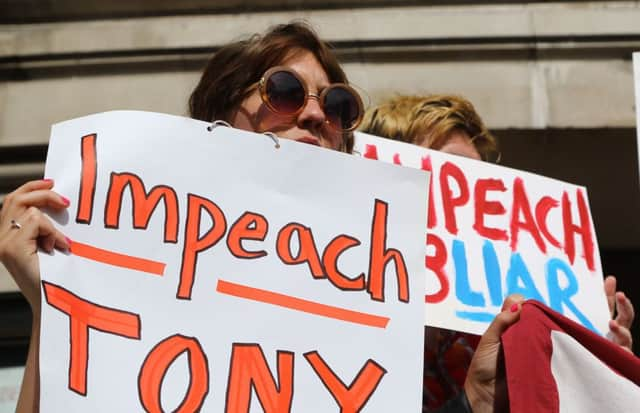

He said: “If we recapitulate all the WMD evidence; add his attempts to secure nuclear capability; and, as seems possible add on the Al Qaida link, it will be hugely persuasive over here. Plus...the abhorrent nature of the regime. It could be done simultaneously with the deadline.”
Advertisement
Hide AdAdvertisement
Hide Ad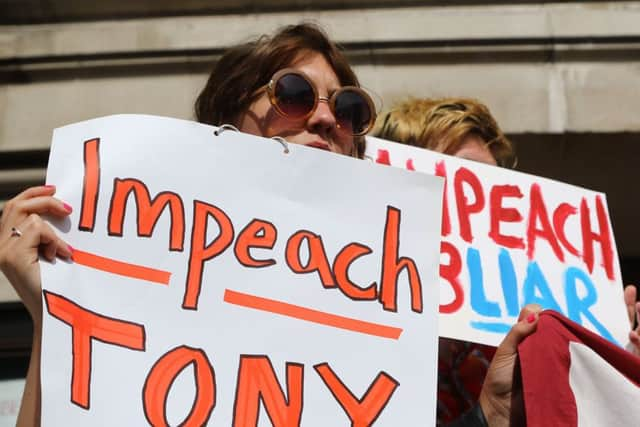

Mr Blair told President Bush that he would be happy to pull together a strategy that ensured the wider Middle East region were “on the same page”.
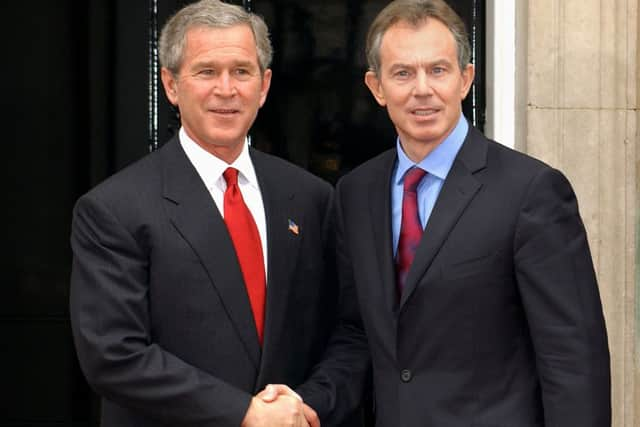

A military plan was also being discussed in the summer of 2002 between the two heads of state.
Advertisement
Hide AdAdvertisement
Hide AdHe outlined plans for 15,000 troops striking inside Iraq with heavy air support.
He wrote: “Finally, obviously we must have a workable military plan. I don’t know the details yet, so this is first blush.”
He said: “We would support in anyway we can.
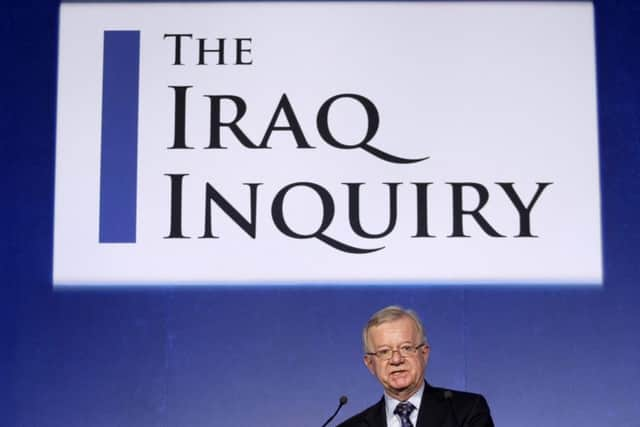

“On timing, we could start building up after the break. A strike date could be January and February next year. But the crucial issue is not when, but how.”
Chilcot says Mr Blair himself over-estimated his ability to influence US policy at a time when ministers were aware of the “inadequacy” of Washington’s plans.
Advertisement
Hide AdAdvertisement
Hide AdThe report acknowledged that the initial campaign to overthrow Saddam was successful and praised the “great courage” of service personnel and civilians involved during and after the invasion, which led to the deaths of more than 200 UK nationals and at least 150,000 Iraqis.
But it found that Britain’s military role “ended a very long way from success” and it was “humiliating” that the UK was reduced to doing deals with a local militia group in Basra, releasing captured militants in return for an end to attacks on British forces.
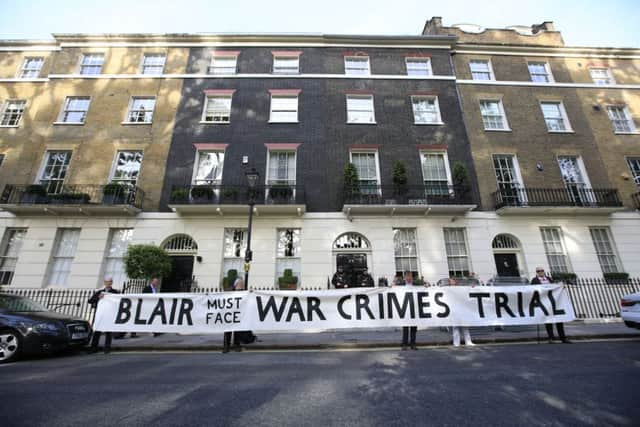

The report was critical of intelligence agencies, which were working with an “ingrained belief” that Saddam retained chemical and biological warfare capabilities which he was hiding from UN inspectors and that he was determined to acquire nuclear weapons.
The Joint Intelligence Committee (JIC) should have made clear to Mr Blair that its suspicions about WMD had not been established “beyond doubt” prior to his publication in September 2002 of a dossier setting out the supposed threat from Saddam, Sir John found.
Advertisement
Hide AdAdvertisement
Hide AdAs late as March 17 2003 - three days before the invasion began - JIC chairman Sir John Scarlett continued to advise the PM that Iraq possessed chemical and biological weapons and the means to deploy them.
But Sir John said: “It is now clear that policy on Iraq was made on the basis of flawed intelligence and assessments. They were not challenged, and they should have been.”
The findings of the 2004 Iraq Survey Group into Iraq’s WMD capabilities were “significant” but did not support pre-invasion statements by Mr Blair and then foreign secretary Jack Straw, which warned of vast stocks of weapons and an urgent and growing threat.
Mr Blair’s response that Saddam retained “the intent and the capability” to develop and use WMD did not match the justification for military action given before the conflict, said Sir John.


Advertisement
Hide AdAdvertisement
Hide AdThe report found that Mr Blair urged Mr Bush in the immediate aftermath of the September 11 terror attacks in 2001 not to take “hasty” action against Iraq.
But it said by the time of the Crawford meeting, there had been a “profound change” in his thinking, with the UK Government stating openly that Iraq was a threat that had to be dealt with, and the JIC privately concluding that Saddam could not be removed without an invasion.